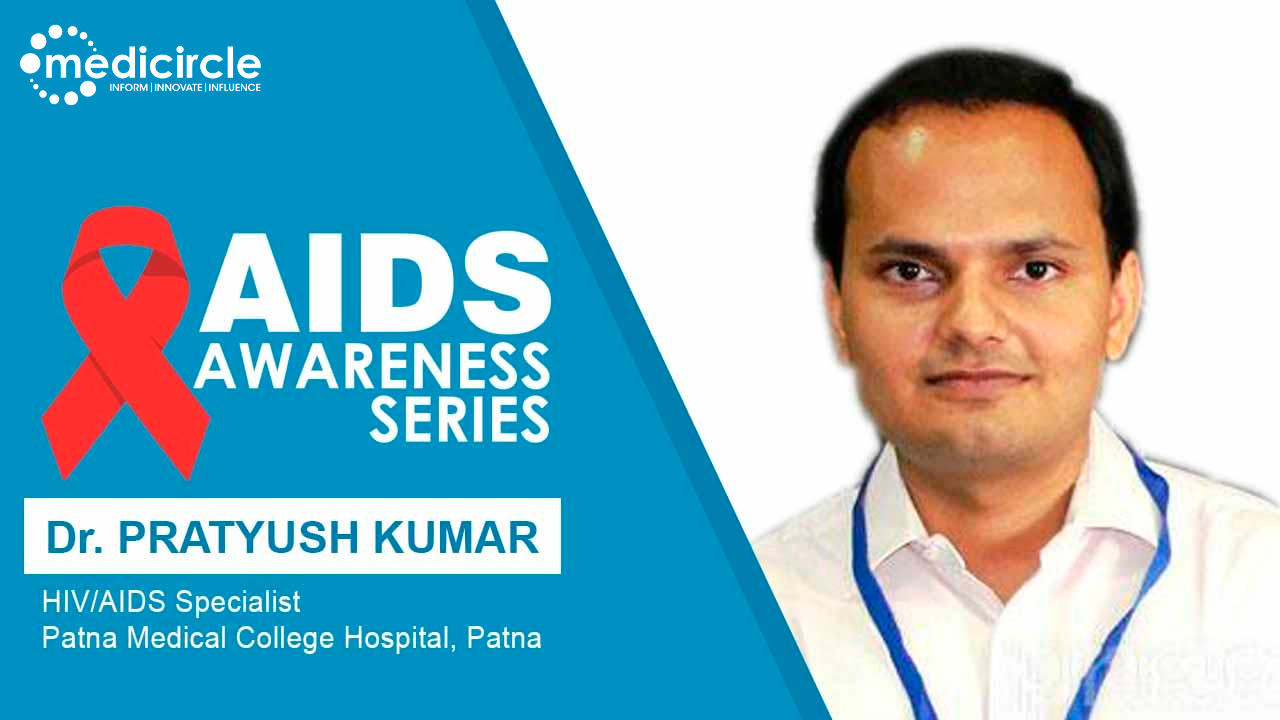We at Medicircle are constantly working on bringing to our audience all the trending health-related topics. It is our primary objective to Bring to your attention news and views you need to be aware of to lead a healthy disease-free life. To help us in this regard we’d be joined by eminent and expert top doctors from across the country. Today, we are going to talk about the problem of prostate cancer and ways to help you deal with it.
Dr. Pratyush Kumar is a consultant physician with a special interest in diabetes and infectious diseases. He has published many research papers on infectious diseases, diabetes, and rural health and presented them at many international conferences. He is passionate about rural health and involved with many international organizations. Currently, he chairs the rural health group of South Asia Wonca Rural South Asia (WoRSA), advisory board member - TUFH, and executive member of the world organization of family doctors (WONCA).
AIDS
Dr. Pratyush begins, “AIDS stands for Acquired Immuno Deficiency Syndrome. It is named like this because
Acquired – It is acquired by HIV infection through sexual transmission, blood transfusion, from mother to baby, or by injectable drugs.
Immuno-Deficiency – This virus attacks the immune cells of the body, gradually lowers immunity. It makes the body immune-deficient over a period of time.
Syndrome – Because of immunocompromised conditions, there are chances of other opportunistic infections."
AIDS - Symptoms
Dr. Pratyush says, “CD4 count is very important in HIV. If it’s less than 200, you may develop AIDS. Lower CD4 count parallels higher opportunistic infections. Symptoms depend on the type of infection.
Infection in the stomach – Loose motion, diarrhea, lumps
Chest infection (TB) – Fever, weight loss, blood in cough
Early-stage symptoms – Lumps in the armpit,
Other infections include brain infection, pneumonia, cancers, skin infections, tongue infection, dermatitis. Symptoms are observed according to the organ involved in the infection."
Dr. Pratyush adds, “If you are having persistent weight loss, fever, skin infections, no recovery after taking antibiotics, poor appetite, other recurring body infections, then you should get tested for HIV."
Monitoring of AIDS
Dr. Pratyush mentions, "AIDS not only destroys our immune system but also affects other organs of the body. HIV medicines have their own side effects, that need to be monitored."
Dr. Pratyush listed some important parameters of AIDSmonitoring
Basic monitoring
Checking weight – If it is improving, then it’s a good sign.
Drug compliance – Medicine is to be taken daily, never miss the dose.
CD4 count – Tested every 6 months.
HIV RNA viral load – Tested once a year
Blood test – Haemoglobin, liver SGPT, Kidney creatinine, lipid profile
Urine test
The patient is also tested for other STI infections.
Advancements in the treatment of HIV
Dr. Pratyush emphasizes, “There have been many advancements in the treatment of HIV. As per the new guidelines,
1. Patients should start taking the medicine from the day he/she is diagnosed HIV positive.
2. Patients have to take a single tablet (TLD) a day with no neuropsychiatric complications.
3. This medication is also given as Post Exposure Prophylaxis (PEP) drug within 72 hours of sexual contact for 4 weeks.
4. Patients can suppress viral load in 6-12 months by taking regular medicine. If the viral load is completely suppressed, the patient cannot spread the disease. So, he/she can build relationships with their spouses, can do family planning.
5. Even an HIV-positive pregnant mother can have a negative baby using ART therapy.
It's high time we end the stigma attached to HIV. With newer developments in treatment, HIV patients can also live a happy and healthy normal life."
(Edited by Renu Gupta)

 Know more about the monitoring of HIV AIDS, and new advancements in their treatments from experienced Dr. Pratyush Kumar, Infectious Diseases Consultant.
Know more about the monitoring of HIV AIDS, and new advancements in their treatments from experienced Dr. Pratyush Kumar, Infectious Diseases Consultant.










.jpeg)







.jpeg)

.jpg)










